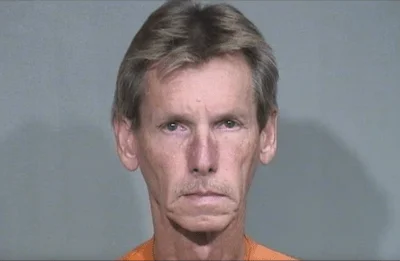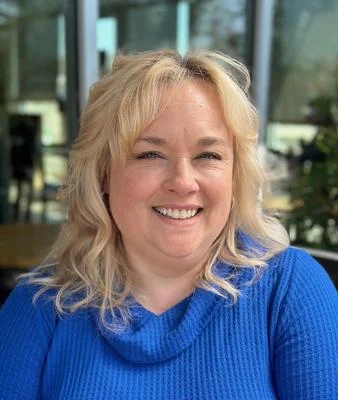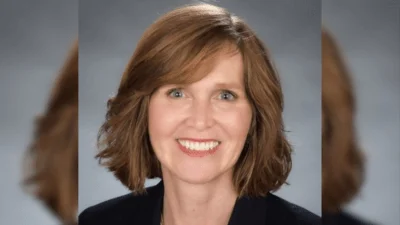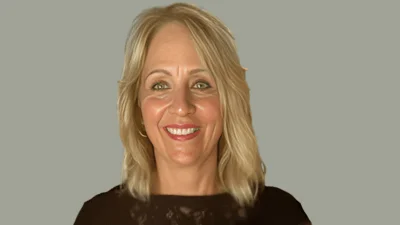Deerfield Mayor Daniel C. Shapiro | Village of Deerfield
Deerfield Mayor Daniel C. Shapiro | Village of Deerfield
Village of Deerfield Committee of the Whole met April 16
Here are the minutes provided by the committee:
The Village Board met as a Committee of the Whole in the Council Chambers of the Village Hall at 5:02 p.m. on Wednesday, April 16, 2025. In attendance were:
PRESENT:
Village Board Staff
Dan Shapiro, Mayor Kent Street, Village Manager
Bob Benton, Trustee Andrew Lichterman, Deputy Village
Larry Berg, Trustee Manager/Director Community Development
Jennifer Goldstone, Trustee John Sliozis, Chief of Police
Elaine Jacoby, Trustee Brian Budny, Deputy Chief of Police
Mary Oppenheim, Trustee Chris Fry, Deputy Chief of Police
Eric Burk, Finance Director
Benjamin Schuster, Village Attorney
Tyler Dickinson, Asst. Dir. of PW and Eng.
David Fitzgerald-Sullivan, Comm. Coord.
Daniel Van Dusen, Deputy Village Clerk
Mayor Shapiro invited Trustee-elect Jesse Greenberg to join the table and participate in the discussion. Mayor Shapiro welcomed back Trustees Jacoby and Berg. He also congratulated Village Manager Kent Street and Management Analyst Jessica Sciarretta on the awards they received at the IAMMA conference.
Public Comment
There were no public comments on non-agenda items.
Business
1. Discussion of Personal Mobility Vehicles
Chief Sliozis began the discussion with an overview of the different types of personal mobility vehicles. He noted the Police Department had begun to receive calls about these types of vehicles last fall. Chief Sliozis reported that he attended a meeting with 20 Chiefs of Police from neighboring communities and they are all experiencing issues with these types of vehicles. Some departments have chosen to wait for legislature to be passed at the state level before proceeding with their own requirements, while some have banned the use of personal mobility vehicles in their downtown areas. Deputy Chief Budny has done extensive research on the different types of personal mobility vehicles as well as on the different regulations that municipalities have put in place to address the issues.
Chief Sliozis outlined the three major issues driving the discussion around these vehicles. The problem group seems to be middle school-aged children that can be seen riding these vehicles around town. This group does not always follow the rules of the road and proper safety practices.
The vehicles are not classified as a bicycle or a motor driven vehicle, so the operators are not required to follow the rules of the road in the same way a bicyclist, pedestrian, roller blader or skate boarder are required to. The second issue relates to outright banning these types of vehicles and the impact that may have on smaller, slower vehicles typically for younger, elementary school-aged children. The third issue pertains to individuals over the age of 16, who have obtained a drivers license, and their ability to use these types of vehicles. The Police Department is seeking to know under what conditions should these types of vehicles be permitted within the village limits. Chief Sliozis noted that a draft ordinance was included in the meeting materials and that it will likely need to be amended/changed as the definitions of the various types of personal mobility vehicles become clearer. He stated that there is an obvious safety concern and that the Police Department has received numerous inquiries related to personal mobility vehicle regulations, including 31 telephone inquiries.
Mayor Shapiro stated he would like to institute an ordinance as soon as possible. He feels that the draft ordinance takes a straightforward approach to the issue by requiring personal mobility vehicle operators to be 16 years of age or older, possess a drivers license, operate the vehicle in the roadway and only operate the vehicle on a roadway with a speed limit of 25 miles per hour or less. Trustee Oppenheim stated that the difficulty will come from defining the various types of vehicles. According to the draft ordinances a motor driven vehicle is defined as any vehicle solely powered by an electric or gas driven wheeled vehicle, motor driven cycle (less than 150cc) or other similar motor driven vehicle for which the State of Illinois does not issue a title document, and does not issue license plates or registration documents. Deputy Chief Budny noted that vehicles that are issued a title by the State of Illinois, like a moped, motorcycle or car are exempt from the draft ordinance regulations. The draft ordinance is intended to address vehicles that are not issued a title by the State of Illinois. Trustee Goldstone suggested adding a provision that personal mobility vehicle operators be required to wear a helmet.
The Board discussed whether these vehicles should be allowed to operate on Deerfield Park District parks, sidewalks and trails. Chief Sliozis reported that the Police Department will reach out to the Park District to discuss the issue. The Park District would then be responsible for passing their own ordinance prohibiting the use of these vehicles in their parks and on their properties. The Village would then enter into an agreement with the Park District to enforce those regulations. The Board discussed the possibility of lowering the age limit in the draft ordinance and requiring operators to take a safety course. Village Attorney Schuster noted that offering and certifying personal mobility vehicle operators could make the Village liable in the case of an accident. Trustee Jacoby asked if tickets would be issued to operators that were not in compliance with the regulations. Chief Sliozis responded that tickets with accompanying fines would be an option for officers to enforce the regulations and that those tickets/fines could be handled through the administrative hearing process. Chief Sliozis pointed out that the draft ordinance regulations do not prohibit pedal-assisted electric bicycles, for any age group. Those vehicles are classified as bicycles and must follow the appropriate regulations. Mr. Street asked Mr. Schuster if the Village could institute an age requirement as a home rule community. Mr. Schuster responded that, as a home rule community, the Village could institute an age requirement to register personal mobility vehicle operators. He noted there are issues with the State of Illinois regulations regarding these types of vehicles. Mr. Schuster asked if the Board wishes to concur with the state regulations or apply their own regulations. The Board agreed to exercise their home rule authority and pursue Deerfield-specific regulations. Chief Sliozis noted that the Police Department’s role will focus more on education rather than enforcement. He does not want to ticket children if it is not necessary.
Mayor Shapiro requested that staff finalize a draft ordinance for a first reading at the May 5, 2025, Board of Trustees meeting. He requested that staff include a provision requiring personal mobility vehicle operators to wear a helmet. He also requested that staff make the Board aware of any changes to neighboring municipalities’ regulations regarding personal mobility vehicles. Staff will create a communication plan to make the community aware of the regulations that are being considered.
2. Discussion of Regulations re: THC Products
Mayor Shapiro offered his thoughts on proposed regulations for the synthetic THC products. Deputy Village Manager Andrew Lichterman pointed out that a letter was received from Adam Silverstein, COO of Garfield’s Beverage Warehouse, suggesting the Board limit sales of THC products to people aged 21 and over and only at existing liquor stores. He noted a copy was provided to the Board. Mayor Shapiro suggested regulations limiting THC in the following ways: prohibiting the sale of Delta-8 products, allowing Delta-9 and Delta-10 products to be sold in established liquor stores to individuals aged 21 or over. He also suggested a regulation requiring the products be clearly labeled that they contain THC. He proposed prohibiting the sale of kratom anywhere in the Village. He noted there are currently no regulations on these products at the federal, state or local level. Trustee Berg stated that he believes regulating these products is imperative to public safety due to there being no age restriction on the sale of these products. The Board agreed on the proposed age restriction allowing the sale of THC products to individuals aged 21 or over. Trustee Oppenheim asked if CBD products are currently being sold in Deerfield at locations other than the approved cannabis dispensary. Chief Sliozis reported that the Police Department is aware of two locations selling CBD products.
The Board agreed to allow sale of Delta-9 and Delta-10 THC products at businesses with a liquor license whose principal use is the sale of alcohol and at approved cannabis dispensary. Trustee Goldstone asked if a separate tax can be imposed on these products. Mr. Lichterman noted such a tax would have to be narrowly tailored to these specific products. Mr. Schuster stated that he would have to conduct a review of the Village’s home rule authority to see if an additional, THC product specific tax could be imposed. Director of Finance Eric Burk questioned if the revenue from such a tax would be worthwhile, both in collection efforts and amount. Chief Sliozis asked if any considerations have been given to the service of these products in a dine-in restaurant setting. Mayor Shapiro suggested addressing that issue when and if a restaurant requests the ability to offer THC products for sale. He noted that any ordinance could be amended regarding that potential use. Mr. Schuster noted the language of the proposed ordinance would state that it is unlawful to sell, deliver or distribute any THC products except for Delta-9 and Delta-10 THC products at approved liquor stores or cannabis dispensary. Trustee Berg pointed out that it is technically permissible for someone to consume one of the THC infused beverages while operating a motor vehicle. He asked if that behavior could be regulated. Mr. Schuster stated that a driver is not allowed to operate a motor vehicle while impaired, regardless of the substance.
The Board discussed the possibility of prohibiting the transportation of opened THC products in vehicles. They agreed the enforcement of such regulations may be too difficult.
Mr. Lichterman pointed out that there is also a semi-synthetic kratom derivative known as 7-Hydroxymitragynine (7-OH) that has been banned in other states. He noted that the Board may want to consider including this kratom derivative in their prohibition, rather than create a potential loophole. The Board agreed that the sale of 7-OH should also be prohibited.
Jim Pratt offered public comment on the proposed ban on kratom products. He had previously spoke at the March 12, 2025, Committee of the Whole meeting on the topic of kratom. He noted the Food and Drug Administration’s website offers warnings on the effects of kratom, including severe adverse effects as well as 44 possible deaths associated with kratom use. Mr. Pratt pointed out that those warnings often use vague, unscientific language and reference the limited information provided in those deaths. He noted that upon further investigation of these reported deaths, evidence showed known poly-drug use of dangerous substances. Mr. Pratt cited National Institute on Drug Abuse reports that have suggested abuse potential is no greater than other substances. Those reports also state than compared to other drugs, a very small number of deaths have been linked to kratom products and that nearly all of the cases involved other drugs or contaminants. The National Institutes of Health has an eight-factor analysis of kratom which is the gold standard in determining addiction liability and whether or not a substance is worthy of scheduling. That assessment concluded the abuse potential of mitragynine is within the range of many uncontrolled substances, that there is no evidence of an imminent risk to public health, and that a Schedule 1 listing carried a public health risks including drug overdoses by individuals using kratom to abstain from opioid use. Mr. Pratt stated three attempts to schedule kratom, once at the federal level and twice at the UN, have all failed.
He urged the Board to study the science and follow the action taken by the Village of Morton Grove, which removed kratom from their synthetic THC product regulations. He pointed out that the Village of Winnetka postponed their vote on regulating kratom, and the City of Northlake added regulations that require vendors to register and obtain a license in order to sell kratom products. Mr. Pratt agreed 7-OH products should be prohibited. He stated that a clear definition can be included to exclude the 7-OH products. That definition should state that regulated products should have less than 2% of hydroxymytragenine, which is well within the bounds of unadulterated kratom. Mr. Pratt believes that banning the sale of kratom will do more harm than good. He agreed to the age restriction regulation that was discussed for THC products. He stated that he came to speak to show that more municipalities banning kratom may limit the availability for users who need it and use it responsibly for medical purposes. He mostly purchases it online to deal with pain from athletics. Mayor Shapiro stated he is not in favor of allowing the sale of kratom, but is open to learning more about it. He stated that the Board may choose to amend an ordinance in the future, and thanked Mr. Pratt for his comments.
Mr. Lichterman asked if a license or a registration fee could be implemented to allow businesses the ability to sell synthetic THC products. Mr. Schuster stated that any fee would have to be linked to the costs incurred in the registration or licensing process as well as for compliance checks. He noted it is illegal to implement a fee specifically to raise revenues. Mr. Schuster stated that a way to raise revenue would be to tax the sale of the products. Trustee Jacoby asked if a license or registration process could be implemented to allow the Village to track which businesses are selling these products in order to follow up with compliance checks. Mr. Schuster stated that would be permissible. Mr. Street stated that staff will work with the Village Attorney to draft an ordinance prohibiting Delta-8 THC products, restricting sales of Delta-9 and Delta-10 THC products to people aged 21 and over, and restricting sales to licensed dispensaries in addition to liquor stores whose principal use is the sale of alcohol, only the sale of products that are clearly labeled to contain THC. The draft ordinance will also prohibit the sale of kratom and synthetic kratom products. The Board also agreed to include a restriction that any THC food products, aside from beverages, be stored behind the counter. Mr. Lichterman pointed out that the Board may want to consider prohibiting the sale of Delta-10 THC products in addition to Delta-8 THC products to be consistent in dealing with the synthetic THC products. He noted that Delta-9 THC products contain the same form of THC as the cannabis products sold in dispensaries. Mr. Street noted staff will work on a draft ordinance for further review by the Board.
3. Discussion of Lead Service Line Replacement Program
Director of Public Works and Engineering Bob Phillips reported on the Lead Service Line Replacement Program. He provided a summary of the events that took place in Flint, Michigan beginning in 2013. They built a new connection for water service which resulted in lower quality water which corroded the lead pipes leading to a water contamination crisis resulting in serious illness and birth defects among residents. As a result, the Illinois State Legislature passed the Lead Service Line Replacement Act in 2021. The Act stipulates that municipalities are required to replace lead service lines once they have been discovered. Mr. Phillips noted the Act requires the lead pipes be replaced with copper or PVC service lines. He reported that a lead service line inventory of the Village’s water system has been created and that there are currently around 500 lead service lines that need replacement. The Village’s water connection is through Highland Park and they treat the water with a chemical called orthophosphate which coats the inside of the lead service pipes to keep lead from leeching into the drinking water. He noted the Village conducts 120 sampling tests per year at lead service testing sites approved by the EPA. The Public Works Department has drafted a proposal for replacing lead service lines. The IEPA has created a 10-year window, starting in 2027, for the Village to replace all of the lead service lines.
Mr. Phillips reported that replacement has already begun and whenever lead service lines are encountered in the field they are replaced. He noted that residents have been notified if their service line has been determined to be made of lead and that lead lines that have been discovered during the course of construction projects have been replaced. Mr. Phillips stated the replacement can be managed internally and that construction projects like the Hazel Avenue and Waukegan Road projects have provided the opportunity to replace lead service lines.
Mr. Schuster pointed out that any resident who wishes to replace their lead service line on their own can do so. Mr. Phillips noted that the lead line must be replaced in its entirety per the Act. In the case where a resident wishes to replace the line on their own, the Public Works and Engineering Department will work to ensure the public side of the service line is replaced with the appropriate material. Mr. Dickinson stated that a single contractor was tasked with replacing 13 lead service lines that were encountered during the course of the Hazel Avenue project. This helped to reduce overall cost to residents and the Village, saving $3,000-$4,000 per service line.
Mr. Dickinson reported the current plan is to implement a similar model for future lead service line replacement projects. He stated the lead service lines must be replaced in the entirety which consists of two components: the private side and the public side. The public side consists of the line from the street to the shut off valve, and the private side extends from the shut off valve into the building or home. The Public Works and Engineering Department is recommending a cost sharing program, which they believe will incentivize residents. Mr. Dickinson stated soliciting a single quote from an area contractor for local target areas that will require lead service line replacements will help to achieve an economy of scale. Mr. Dickinson noted the cost share program would split costs 50/50 up to $6,000 between the homeowner and the Village. The cost is determined by the length and location of the service line. Mr. Phillips stated that costs will be influenced by supply and demand, the price of copper as well as other factors. He noted partnering with residents to replace these service lines is mutually beneficial.
Trustee Jacoby asked what happens if a property owner chooses not to replace their lead service line. Mr. Dickinson stated the IEPA has no mechanism to force a property owner to replace their service line. They are required to sign a waiver stating the do not wish to replace the service line and understand the cost share offer will not be offered in the future. Mayor Shapiro asked if that waiver is recorded against the property so that future owners of that property are aware of the lead service line. Mr. Dickinson stated the IEPA will have a list of properties that have signed a waiver so a searchable database will be created, but he is unsure if the waivers will be recorded against the property. He noted property owners are not required to sign the waiver, and in such a case the Public Works and Engineering Department will document their attempts to complete the waiver process. Trustee Oppenheim asked if the public side of the service line will still need to be replaced if a property owner signs a waiver. Mr. Dickinson confirmed the Village is still responsible for replacement of the public portion. Trustee Oppenheim asked if the cost share program is adopted, how will the public be informed and how will the program be budgeted.
Mayor Shapiro suggested budgeting $250,000 per year to be used for the lead service line replacement program. Mr. Phillips stated replacement projects can be forecasted during budget discussions every year. Mr. Schuster stated a resolution can be drafted authorizing the cost share program. He pointed out that any resolution will state the terms authorizing the dollar amount the property owner can receive toward replacement. Mr. Greenberg asked if the revenue is already there for this project. Mr. Burk stated funds will be allocated during annual budget discussions.
Mr. Phillips stated there are other funding sources available. Mr. Schuster noted there are some other requirements and conditions to receive those types of funding.. Mayor Shapiro noted staff will create a communication plan to make residents aware. Mr. Phillips pointed out that all property owners who have been identified to have a lead service line, or an unknown service line type, has been notified. Mr. Dickinson noted there is a strict notification requirement included in the state law. Mayor Shapiro thanked staff for the presentation on their recommendation.
4. Discussion of Grocery Tax
This agenda item was continued to the next Committee of the Whole meeting to be held on May 21, 2025.
5. Discussion of Development Project Upgrades
This agenda item was continued to the next Committee of the Whole meeting to be held on May 21, 2025.
Public Comment
There were no public comments on non-agenda items.
Adjournment:
There being no further business or discussion, Trustee Oppenheim moved to adjourn the meeting. Trustee Berg seconded the motion. The motion passed by unanimous voice vote.
The meeting was adjourned at 7:08 p.m.
https://www.deerfield.il.us/AgendaCenter/ViewFile/Minutes/_04162025-1206






 Alerts Sign-up
Alerts Sign-up